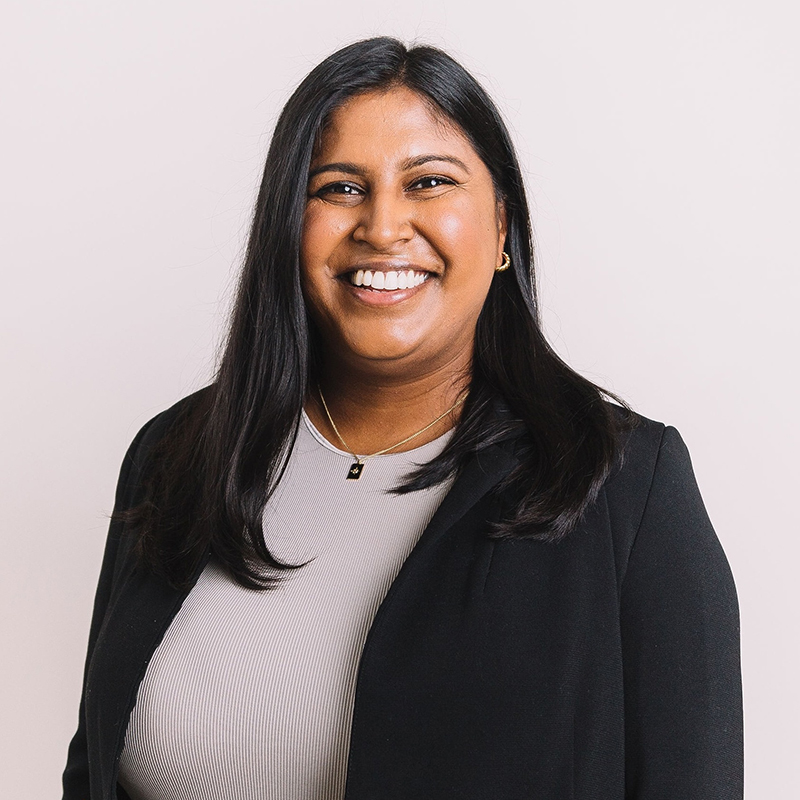Arti Patel

Arti Patel graduated from TMU's journalism program in 2011. This Q&A was conducted when she was the senior producer for education and entertainment at CBC News. Arti is currently the executive producer social and audience development at CBC News now.
Let’s go back to 2007, why did you choose to study journalism?
I've always had an interest in storytelling. When I was younger, I would write out comic strips, short stories and even make my own entertainment magazine using old cut-outs. But this was all a creative hobby, at that time, I was not aware a career in writing or visual storytelling would be a career, especially not knowing anyone in my community or family that worked in news. But I wasn't aware and critical of journalism itself until I became a teenager. The death of a friend in my neighbourhood opened my eyes to how it was covered, how the media portrayed her and her story and the direct impact it had on a community. I became very mindful of how news deeply impacted families and their surroundings and it was the first time I considered journalism as a career. Luckily, I had a very supportive English teacher in high school who encouraged me to write for the school paper and broaden my scope of journalism itself, it was all of these three things that pushed me to apply.
How did the things you learned in school prepare you for your career?
Besides the basics of writing, interviewing and finding sources, one of the most valuable things I learned in school was how to collaborate and work with a team. Any newsroom course or project with an editor, producer and reporter were good examples of working with different personalities in the real world.
You’ve worked with CBC for two years now. How did you land your role there?
I was approached by CBC News in 2021 to apply for a role in Education and Entertainment. I had been working in lifestyle journalism for almost a decade and had experience in both digital and television. While I was adjusting to a new role at The Morning Show at Global News, working for the public broadcaster was always on my long-term goal list, I just wasn't sure how to transfer my skill set in lifestyle and entertainment news. As I learned more about the role and eventually started it, I realized quickly how much of my experience in leadership, assignment and storytelling could be transferred over.
Can you talk about one of the biggest challenges you’ve faced as a journalist?
I have been very grateful to work in this industry post-graduation, when often the biggest hurdle is landing that first internship or turning it into a paying job. Job security was something I struggled with in the beginning of my career, working on a contract without benefits and trying to prove myself for full-time work. As a result, I found myself burning out as well and having the inability to disconnect from my phone.
Of course, there are other challenges being a BIPOC woman and sometimes, the only BIPOC leader in a newsroom. This can mean dealing with microaggressions, getting tasked with diversity and inclusion work or convincing others (to provide) space for storytelling.
It has been said often that journalism is “dying.” How do you feel about that?
Like any industry, journalists also have to adapt to changing tech, platforms and even audiences. While I understand the way we consume journalism has changed, even since I have graduated, it is important to know that many still rely on the news — they may have just changed how they receive it. This is why many companies stay innovative and diversify their content to reach new audiences, something I even try to do as a senior producer.
How do you think your first-year self would react to where you are now?
Probably shocked I work in management. I would say a lot of my career was building up my confidence and to be a role model to my younger self. So much of our industry has changed and continues to change, and I have been grateful to have several jobs in my pocket now, including editing, reporting and managing a team. My first-year self would also be proud that a lot of the reasons I pursued a career in journalism (diversifying it, challenging it and making it more inclusive), continues to be what my goals are today.
What advice would you give to current journalism students?
Keep writing, keep reading and keep your mind open. I've always found over the years having skills to write has led me to several positions — from reporter to editor to even managing a morning show. Keeping your mind open means understanding how transferable your skills of journalism school really are. And while we all have to enter a competitive and often struggling job market, I always tell students to remember how far your skills can take you. So many brands have content creation, storytellers and social media specialists that require these skills. Also, keep telling stories, even on your own platforms. I have always found the best story generation comes from those who have a range of people and experience around them.
This interview has been edited for length and clarity. Photo taken by Nicole Brumley.
Grads at Work is a series of profiles of School of Journalism alums. If you know of a notable grad you’d like to see featured, send us an email at office.journalism@torontomu.ca.
